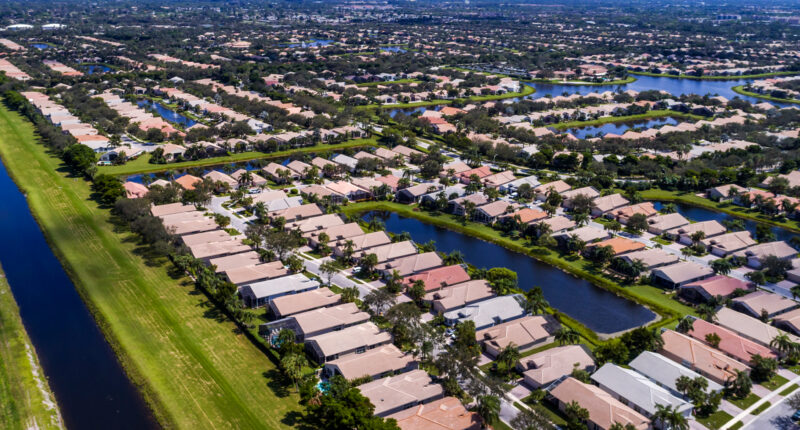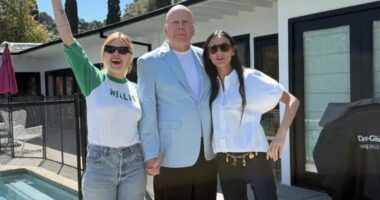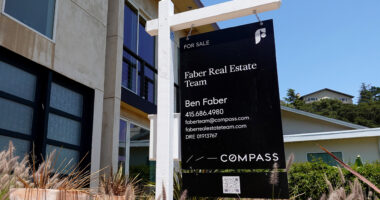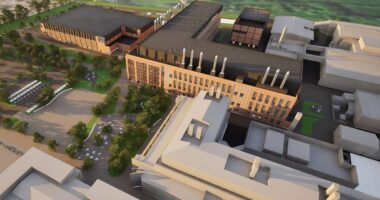HOMEOWNERS trying to sell up have been rocked by a new law which has made their condos worthless.
Florida Governor Ron DeSantis’s regulations resulted in spiraling HOA fees for the older condos.

Residents living in condos in the Sunshine State are struggling to offload their homes.
Their old properties are worth virtually nothing – and the situation has become dire, reported the Daily Mail.
The area’s aging towers are becoming an expensive nightmare due to mandatory repairs and rising HOA fees.
It cited an example at Boynton Beach, where one hapless homeowner has seen their advertised property price plummet to a mere $10,000.
Yet they purchased the property for $60,000 in 2001.
Also, the two-bedroom, two-bathroom condo at Hunters Run Country Club offers potential buyers access to a pool and top amenities.
But no one is keen to become the new owner.
Meanwhile, a one-bedroom, two-bathroom condo on Marco Island which comes with water access at Sunrise Bay Resort is listed for a paltry $9,000.
This price is exceptionally low compared to a home on Marco Island with an oceanfront view, which is listed at a staggering $629,000.
The problem is that buyers are shunning the older properties and turning instead to modern versions.
This is because the new homes are considered safer, as they offer the latest storm protections, and don’t attract sky-high HOA fees, the paper added.
Condo owners in Florida faced rising costs under a 2022 law, which requires condo associations to have sufficient reserves to cover major repairs.
SURFSIDE
The Mail has attributed the problem to the Florida law, which was passed after a building collapsed in 2021, killing 98 people.
Champlain Towers South crumbled in Surfside, outside Miami, in June 2021.
The 12-story, 136-unit oceanfront condo building caved in, leaving a giant pile of rubble.
It was one of the deadliest structure collapses in U.S. history.
NEW LAW
In response to the tragedy, Governor DeSantis, a Republican, enacted new legislation mandating that condo associations for buildings taller than three stories must submit inspection reports concentrating on the building’s structure, upkeep, and anticipated expenses for repairs and upgrades.
The regulations require associations to have sufficient reserves to cover major repairs and to survey reserves every decade.
As a result of this law, older condominiums, mainly located in South Florida as indicated by state records, are experiencing significant hikes in association fees to cover reserve funds and maintenance expenses.
It’s been tough on retirees and those living on fixed incomes.
Alessandra Stivelman, of Eisinger Law, told the Mail, “New condos built to modern codes and with fully compliant reserves will thrive — while older buildings may struggle to survive and face termination, bulk sales, or redevelopment.”
He warned of a “growing divide” between those who own older condos, and those who have bought modern versions.
The State of Florida Property Management Association said that, for example, each of the 217 owners of the 50-year-old Miami’s Cricket Club has been asked to pay an extra $134,000 to meet requirements.
RELIEF IN SIGHT
However, Florida condominium residents grappling with the steep cost of building improvements are about to get some financial relief, reported the Associated Press.
This is because of a new bill signed into law by DeSantis on Monday.
What is the new law for condos in Florida?

A new bill has been signed into law by Republican Gov. Ron DeSantis
The new law goes into effect July 1 and is aimed at reforming a condo safety law passed in 2022 in the wake of the horrific Surfside disaster.
It gives condo homeowner associations more flexibility in how to build up their reserve funds.
It also eases some requirements for safety assessments.
The new measure allows certain condo associations to fund their reserves through a loan or line of credit.
It also gives residents greater flexibility to pause payments into their reserve funds while they prioritize needed repairs and extends the deadline for associations to complete structural integrity studies.
Some smaller buildings will be exempt from having to do those analyses.
The new measure gives condo homeowner associations more flexibility in how to build up their reserve funds and eases some requirements for safety assessments.
The new law goes into effect July 1, and is aimed at reforming the condo safety law passed in 2022 in the wake of the Surfside disaster.
Republican state Sen. Ed Hooper said, “Now it’s time to make the change.
“Elderly people are losing their condos because they could not afford to make the increase in their monthly HOA fees. That’s just wrong.”
















